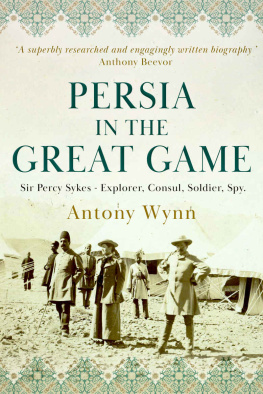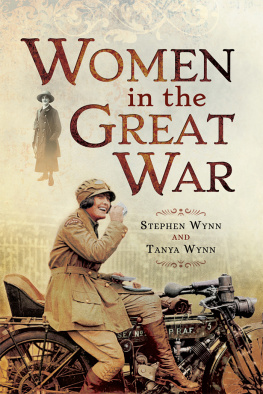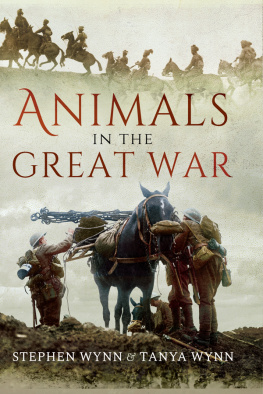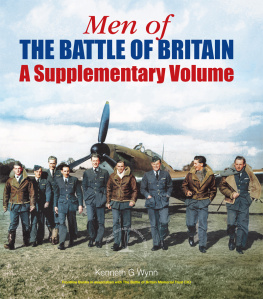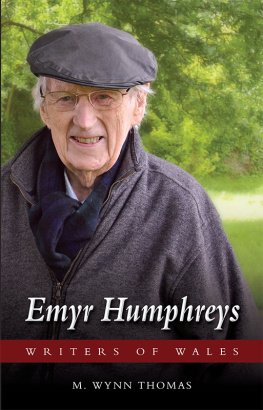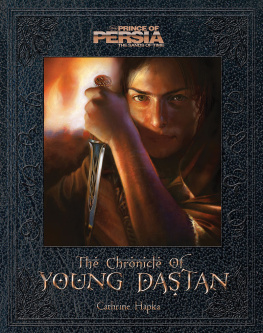Wynn - Persia in the Great Game
Here you can read online Wynn - Persia in the Great Game full text of the book (entire story) in english for free. Download pdf and epub, get meaning, cover and reviews about this ebook. year: 2020, publisher: Lume Books, genre: Detective and thriller. Description of the work, (preface) as well as reviews are available. Best literature library LitArk.com created for fans of good reading and offers a wide selection of genres:
Romance novel
Science fiction
Adventure
Detective
Science
History
Home and family
Prose
Art
Politics
Computer
Non-fiction
Religion
Business
Children
Humor
Choose a favorite category and find really read worthwhile books. Enjoy immersion in the world of imagination, feel the emotions of the characters or learn something new for yourself, make an fascinating discovery.
- Book:Persia in the Great Game
- Author:
- Publisher:Lume Books
- Genre:
- Year:2020
- Rating:5 / 5
- Favourites:Add to favourites
- Your mark:
- 100
- 1
- 2
- 3
- 4
- 5
Persia in the Great Game: summary, description and annotation
We offer to read an annotation, description, summary or preface (depends on what the author of the book "Persia in the Great Game" wrote himself). If you haven't found the necessary information about the book — write in the comments, we will try to find it.
Wynn: author's other books
Who wrote Persia in the Great Game? Find out the surname, the name of the author of the book and a list of all author's works by series.
Persia in the Great Game — read online for free the complete book (whole text) full work
Below is the text of the book, divided by pages. System saving the place of the last page read, allows you to conveniently read the book "Persia in the Great Game" online for free, without having to search again every time where you left off. Put a bookmark, and you can go to the page where you finished reading at any time.
Font size:
Interval:
Bookmark:
Persia in the Great Game
Sir Percy Sykes
Explorer, Consul, Soldier, Spy
Antony Wynn
First published by John Murray in 2003
Copyright Antony Wynn 2003, 2015, 2020
This edition published in 2020 by Lume Books
30 Great Guildford Street,
Borough, SE1 0HS
The right of Antony Wynn to be identified as the author of this work has been asserted by them in accordance with the Copyright, Design and Patents Act, 1988.
All rights reserved. No part of this publication may be reproduced, stored in a retrieval system, or transmitted in photocopying, recording or otherwise, without the prior permission of the copyright owner.
Table of Contents
Foreword
I am indebted for their help to Jonathan and Tristram Sykes, who lent me Sir Percys diaries and photographs; to Bill Sykes, who lent me his books written by Sir Percy; to Sir Percys youngest daughter Elinor Sinclair and his grandchildren Mark and Margaret Sinclair, who gave generous financial help with the illustrations and to their sister Vicky Austerfield, who at the last moment found the memoir of Elinors early life with Sir Percy.
Outside the Sykes family, I am indebted to Sir Denis Wright, formerly HM Ambassador to Iran and author of The English amongst the Persians , for access to his copious notes on Sykes and Farman Farma; to Clare Brown, erstwhile curator of the Middle East Centre Private Papers Collection at St Antonys College, Oxford; to John Fisher at the Public Record Office for his painstaking help in finding documents; to David McLean, Professor of History at Kings College, London; to Floreeda Safiri for the loan of her thesis on the South Persia Rifles; to Farugh Farman Farmaian for information about Prince Farman Farmas family connections; to Kaveh Bayat, Iranian historian and grandson of Saulat ud-Dowleh, for copies of Persian documents; to Dr John Gurney of the Oriental Institute, Oxford, for revising the manuscript; to Dr Homa Katouzian; to the military historian Gordon Corrigan for his information about nappy pins; to the London Library for providing so many source books, old and new; to Kate Paice, who has been an enthusiastic and constructive editor; to Andrew Lownie, my tireless agent; to Matthew Taylor for his final revisions of the text and to Anna Enayat and Caroline Knox for their very helpful guidance and comments in the early days.
I am particularly indebted to Dr Sheila Canby and Dr Venetia Porter of the British Museum, who discovered the long-lost photographs and mediaeval Persian tiles donated to the Museum by Sir Percy. Most of all, I am indebted to Sir Percys son-in-law the late Sir Patrick Reilly, who not only gave me all his unpublished notes about Sir Percy and Lady Sykes but spent hours with me and replied at length and by return, with great courtesy and detail, to all my written queries. Finally, I am grateful to my wife Victoria for her ruthless comments on my prose and for all her support over the elephantine gestation of this book. Any errors that have entered the book in spite of all the advice from the above are my own responsibility alone.
This book is intended for the general reader with no specialist knowledge of Persia. I beg forgiveness from the experts for my attempts at simplifying the complicated history of Persia and from the non-experts for the detail contained in the Mashhad chapters, which tell a story that no one has told before and say much about Russian duplicity and scorn for treaties at that time.
Persia or Iran? Herodotus gave the name of Persia to the country, after Pars, the principal province of the Achaemenian empire of Iran, which extended from the Mediterranean and the Black Sea far up into Central Asia. Ever since, Europeans referred to Iran as Persia until 1935, when Reza Shah insisted that his country be called Iran. However, Europeans could never bring themselves to refer to Iranian carpets, miniatures, pottery or poetry as Iranian, and they have stuck to the old word for these.
Iran is populated by Persians, Azeri Turks, Turkomans, Kurds, Lurs, Arabs, Armenians, Assyrians and Baluchis all speaking different languages but it is from the Persians, the people of the central plateau, that Persian culture has come down. So what should we call their country? There is a tendency nowadays, when talking of politics or oil, to refer to Iran and, when talking of the culture or of the country before the Pahlavi reforms, to use Persia. Sir Percy Sykes was aware of Iranian sensitivities in this regard and, when he wrote his Ten Thousand Miles in Persia , he gave it the subtitle of Eight Years in Iran. I hope that my Iranian friends will forgive me for following Sir Percys contemporaries and calling their country Persia in this book.
Prologue
As I came out of a barbers shop in Shiraz, an old man of soldierly bearing stepped out into the narrow street from the tiny shop next door and snapped smartly to attention. From between a full set of gold teeth gleaming through his massive waxed moustaches he declared, Troop ready for inspection, Sahib. He filled his lungs with air and bellowed: Troop: Order lance... Trail lance. When I asked him where he had learned these British cavalry commands, he grinned and said, with great pride: With the South Persia Rifles, under Sir Percy Sykes, Sahib. That was all the English that he could remember. His name was Kal Heidar and in his retirement he was earning his living by pressing suits with a set of flat irons heated with charcoal.
The year was 1970 and Sir Percy Sykes had been dead for twenty-five years. I was studying Persian at the University of Shiraz and was lodging with the barber and his family. Kal Heidar (Kal is short for Kerbelai, one who has made the pilgrimage to the holy city of Kerbela in Iraq) greeted me every morning and from time to time we chatted and he told me his story. He was a jovial old rascal who had had a colourful military career: in addition to the South Persia Rifles he had served in and been successively cashiered from the Ottoman army, the Abadan police, the Persian Gendarmerie and even the Persian Cossacks, where he claimed to have been the sergeant who had taught the future Reza Shah to hold a rifle and to march straight.
There are few left today in Iran who remember Sir Percy Sykes but his legend, over a hundred years after his arrival in what was then called Persia, is still very much alive. Sir Percy had a conventional enough start to his life. At the age of ten he heard Sir Samuel Baker, the great African explorer, speak about his travels. That fired his imagination and he decided to follow the same kind of career. He went to school at Rugby in 1882 and, after going to Sandhurst, joined a cavalry regiment in India. There he spent as much of his time as he could exploring the mountains of Kashmir and Ladakh in pursuit of big game. He soon came to the notice of Army Intelligence and was sent on a mission in disguise into Russian Turkistan. He had joined the Great Game.
What followed was a series of journeys of exploration in the most deserted and unmapped areas of eastern Persia, conducting surveys for the Government of India, which was concerned about the threat to its security posed by the Russian advances into Central Asia. He was then sent to found a consulate in the oasis town of Kerman in south-eastern Persia as an outpost against these Russian moves southward. There, first with his sister and later with his wife, he spent ten years acquiring an encyclopaedic knowledge of the people, language, history, geography, religion, archaeology and folklore of Persia, making many local friends in the process. Astonishingly, he was paid no salary during all this time.
In 1905 Sykes was sent north to take over the consulate at Mashhad, which, being close to the Russian border, was the most sensitive of all the British posts in Persia and was vital for gathering intelligence about Russian military activity. During the eight years he spent there he witnessed the drama of the Anglo-Russian Convention, which divided Persia into zones of Russian and British influence; this was followed by the turmoil of the Constitutional Revolution and the Russian-backed counter-revolution. With great skill, tact and patience he cultivated relations with the local Persian government and stiffened its resistance to the Russian attempts to turn the north of Persia into a Russian province and a springboard into India.
Next pageFont size:
Interval:
Bookmark:
Similar books «Persia in the Great Game»
Look at similar books to Persia in the Great Game. We have selected literature similar in name and meaning in the hope of providing readers with more options to find new, interesting, not yet read works.
Discussion, reviews of the book Persia in the Great Game and just readers' own opinions. Leave your comments, write what you think about the work, its meaning or the main characters. Specify what exactly you liked and what you didn't like, and why you think so.

